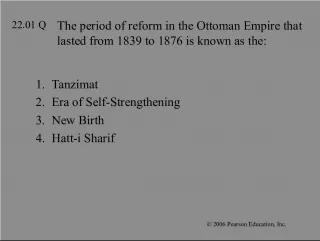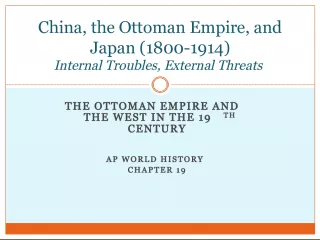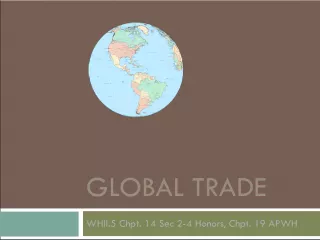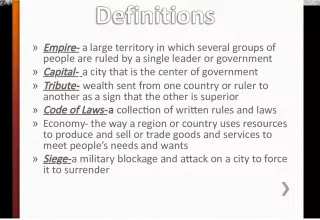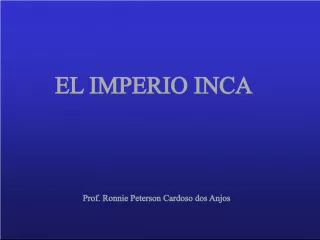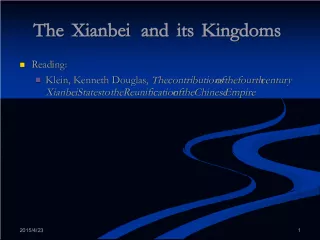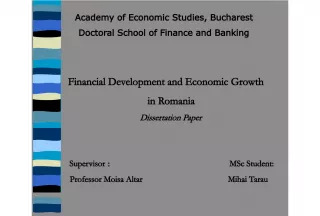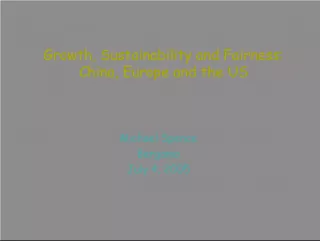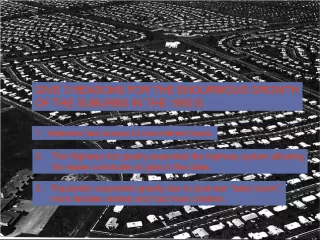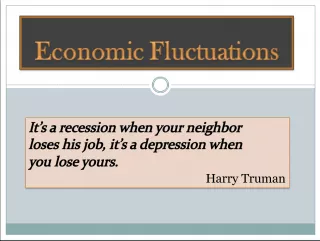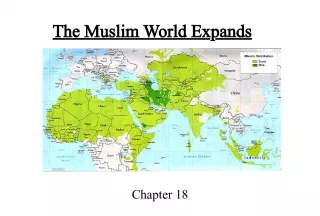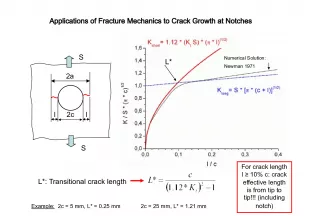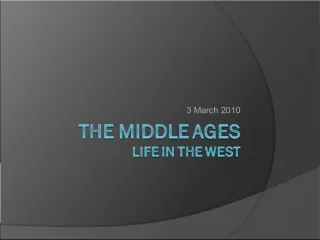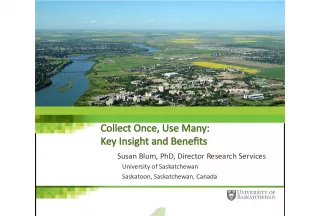The Safavid Empire and its Growth
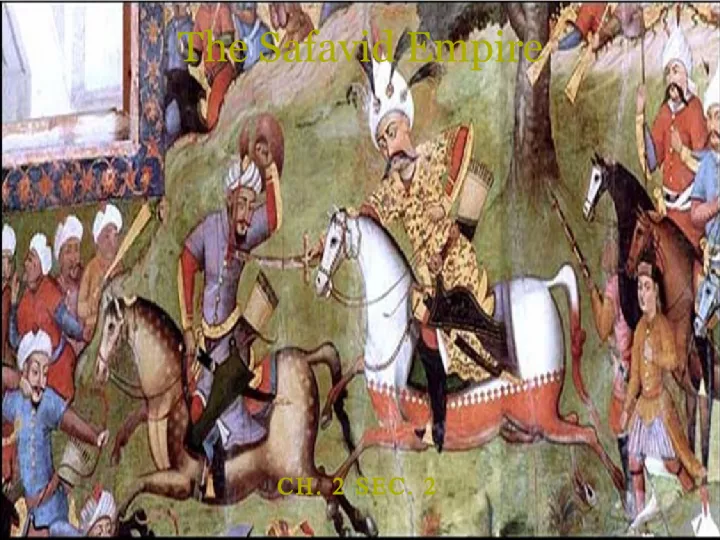

This section explores the vocabulary associated with the Safavid Empire, including key figures such as Isma'il and Shah Abbas, as well as important locations like Esfahan. The Safavid Empire
- Uploaded on | 1 Views
-
 alexismartin
alexismartin
About The Safavid Empire and its Growth
PowerPoint presentation about 'The Safavid Empire and its Growth'. This presentation describes the topic on This section explores the vocabulary associated with the Safavid Empire, including key figures such as Isma'il and Shah Abbas, as well as important locations like Esfahan. The Safavid Empire. The key topics included in this slideshow are . Download this presentation absolutely free.
Presentation Transcript
Slide1CH. 2 SEC. 2The Safavid Empire
Slide2Vocabulary Safavid Isma’il Shah Shah Abbas Esfahan Persians
Slide3The Safavid Empire Grows Safavids Originally were members of an Islamic religious brotherhood. Brotherhood was founded by Safi al-Din The land they lived on was between two Empires, so the Safavids built a huge army for protection.
Slide4Taking Over Present Day Iran The Safavids continue to build their army until 1499. In 1499, a twelve year old boy named Isma’il becomes leader of the military and uses the Safavid army to take over Persia, which the country of Iran today. Isma’il has himself named shah , which means king.
Slide5Life under Isma’il Unlike Ottoman rulers, Safavid rulers like Isma’il hated other religions. Any citizen that did not convert “change” religion to Shi’ism was killed. In a war with Ottomans, Isma’il destroyed the entire Sunni religious population in the city of Baghdad. By killing all the Sunnis in Baghdad, Isma’il caused the Ottoman ruler, Selim the Grim, to order the execution of all Shiites in the Ottoman Empire, these people practiced the same religion as Isma’il.
Slide6Shah Abbas After the death of Isma’il, Shah Abbas “Abbas the Great” becomes ruler in 1587. Shah Abbas starts the golden age “time of wealth” Reforms: Limited power of military Created two loyal armies Punished corruption in the government Brought Christian worshippers into the empire so Europeans would move into the empire.
Slide7Shah Abbas and the Golden Age
Slide8Changes under Shah Abbas Shah Abbas built a new capital called Esfahan . Allowed different groups of artists, painters, and sculptors to help design and build the city. Art Work: Abbas allowed hundreds of Chinese artists to create paintings, glass windows, pottery, that decorate the churches in Esfahan. Carpets: Countries wanted carpets made in the Safavid Empire With so many countries wanting carpets, this helped the Safavid Empire become friends with different countries.
Slide9Safavid ArtHow are they similar? How are they different?
Slide10Safavid Carpets
Slide11The Safavid Empire Falls apart… Mistakes of Shah Abbas Killed and blinded his oldest sons. Chose his weak grandson Safi to be the next ruler. Final Ruler Nadir Shah Afshar becomes the final Safavid ruler in 1736. He was so cruel that one of his soldiers assassinated him After his death in 1747 the Safavid Empire collapsed.
Slide12Cultural Blending Turn to page 78 in your textbook. Work with the person sitting next to you answer these three questions… What is Cultural Blending? Where does cultural blending occur? What are cultures exposed to when they meet another culture?
Slide13Causes of Cultural Blending Cause Number 1 Migration People moving to different areas or different countries.
Slide14Causes of Cultural Blending Cause Number 2 Religious Freedom Moving to a country where you can practice your religion.
Slide15Causes of Cultural Blending Cause Number 3 Trade Buying or selling different things to other people or countries.
Slide16Causes of Cultural Blending Cause Number 4 Conquest Taking over another country by force.
Slide17Impact of Cultural Blending Language: Languages are mixed together, or a cultures writing is mixed together. Chinese language used in the country of Japan…
Slide18Impact of Cultural Blending Religion: religions spread into different countries but change their ideas. Buddhist monks believe in different things from Japanese Zen monks.
Slide19Impact of Cultural Blending Government: government ideas spread into different countries but they are not the same. American democracy lets people vote for leaders, Chinese democracy does not let people vote for leaders.
Slide20Impact of Cultural Blending Race: different races come together through marriage. Mestizo are people living in Mexico that have European and Mexican families.
Slide21Impact of Cultural Blending Art and Architecture: styles of art and architecture are mixed together when building new buildings. Builders of the U.S. Capitol building in Washington D.C. borrowed ideas from Greek buildings in Europe
Slide22Exit Ticket Answer the LEQ “Why is cultural blending important for any group of people, or country today?” This is your opinion, but explain your answer…
